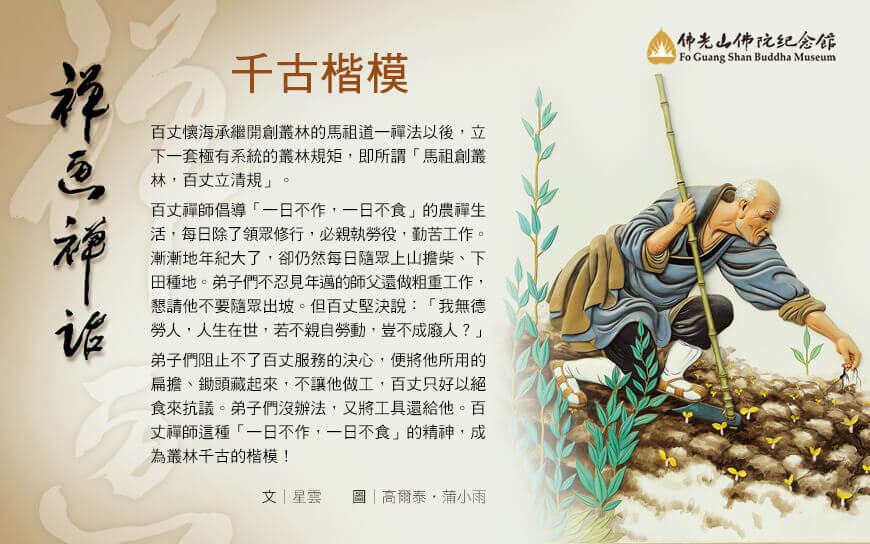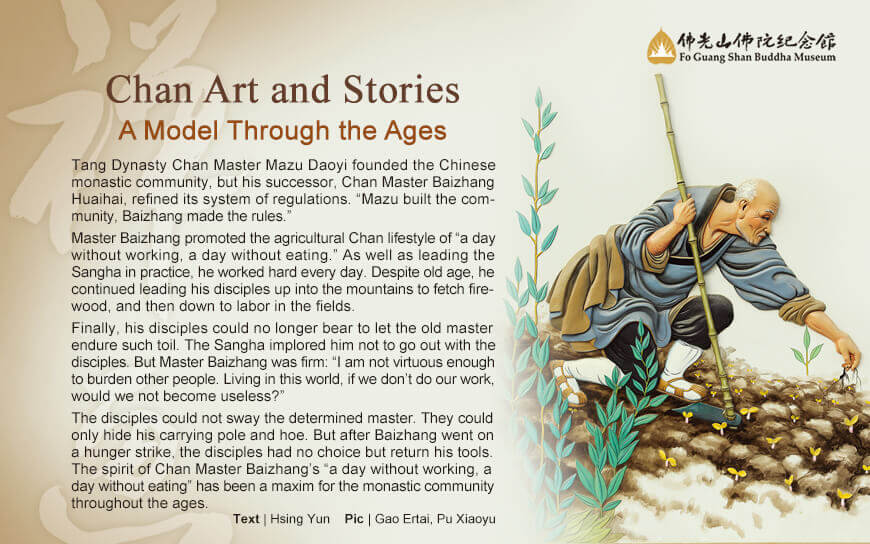語音導覽 - 禪畫禪話Audio Guide - Chan Art and Stories

百丈懷海承繼開創叢林的馬祖道一禪法以後,立下一套極有系統的叢林規矩,即所謂「馬祖創叢林,百丈立清規」。
百丈禪師倡導「一日不作,一日不食」的農禪生活,每日除了領眾修行,必親執勞役,勤苦工作。漸漸地年紀大了,卻仍然每日隨眾上山擔柴、下田種地。弟子們不忍見年邁的師父還做粗重工作,懇請他不要隨眾出坡。但百丈堅決說:「我無德勞人,人生在世,若不親自勞動,豈不成廢人?」
弟子們阻止不了百丈服務的決心,便將他所用的扁擔、鋤頭藏起來,不讓他做工,百丈只好以絕食來抗議。弟子們沒辦法,又將工具還給他。百丈禪師這種「一日不作,一日不食」的精神,成為叢林千古的楷模!

Tang Dynasty Chan Master Mazu Daoyi founded the Chinese monastic community, but his successor, Chan Master Baizhang Huaihai, refined its system of regulations. “Mazu built the community, Baizhang made the rules.” Master Baizhang promoted the agricultural Chan lifestyle of “a day without working, a day without eating.” As well as leading the Sangha in practice, he worked hard every day. Despite old age, he continued leading his disciples up into the mountains to fetch firewood, and then down to labor in the fields. Finally, his disciples could no longer bear to let the old master endure such toil. The Sangha implored him not to go out with the disciples. But Master Baizhang was firm: “I am not virtuous enough to burden other people. Living in this world, if we don’t do our work, would we not become useless?” The disciples could not sway the determined master. They could only hide his carrying pole and hoe. But after Baizhang went on a hunger strike, the disciples had no choice but return his tools. The spirit of Chan Master Baizhang’s “a day without working, a day without eating” has been a maxim for the monastic community throughout the ages.
 上一則
上一則